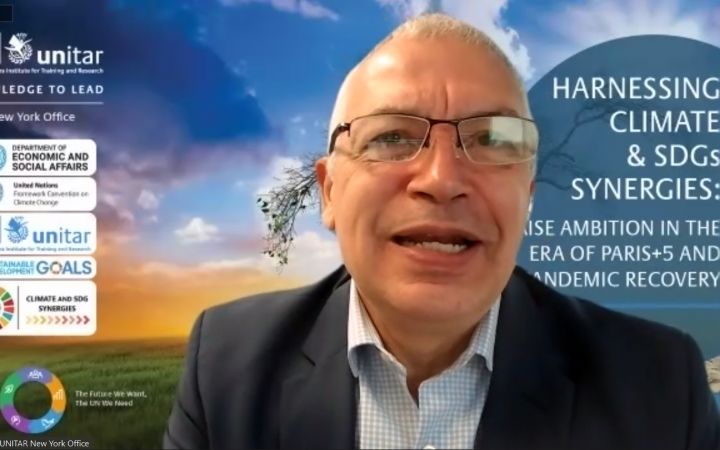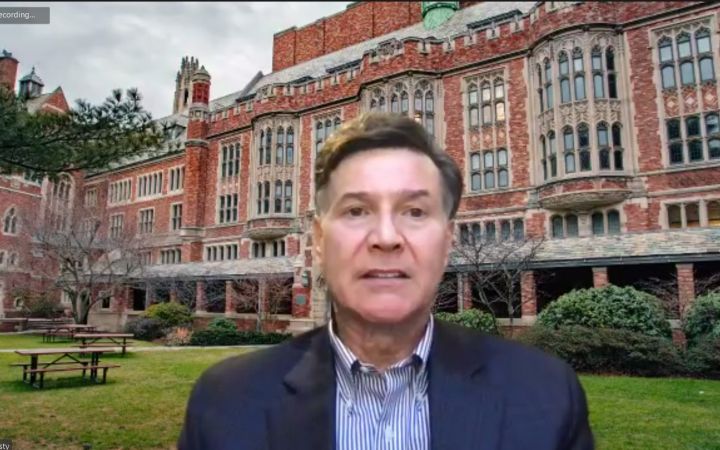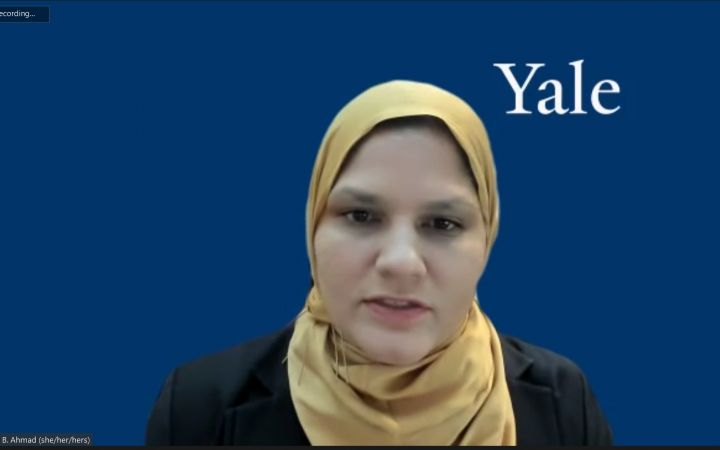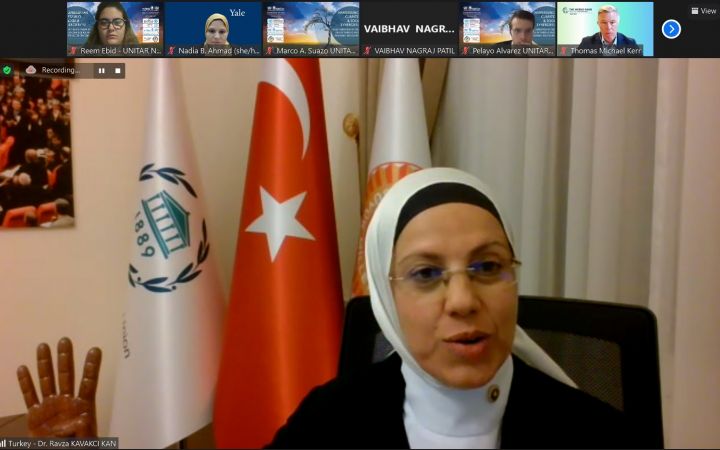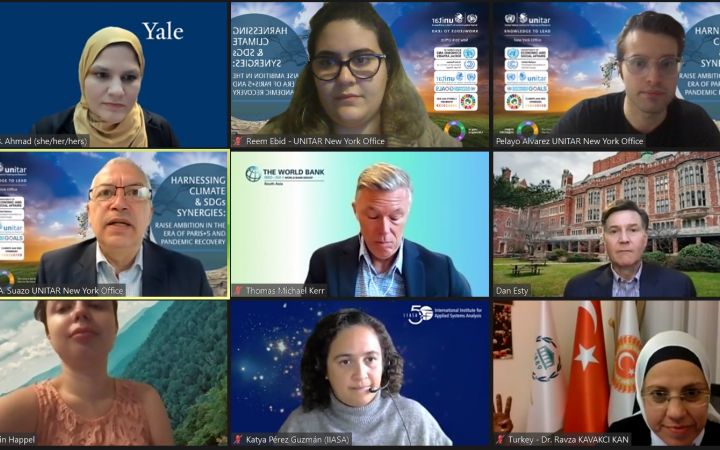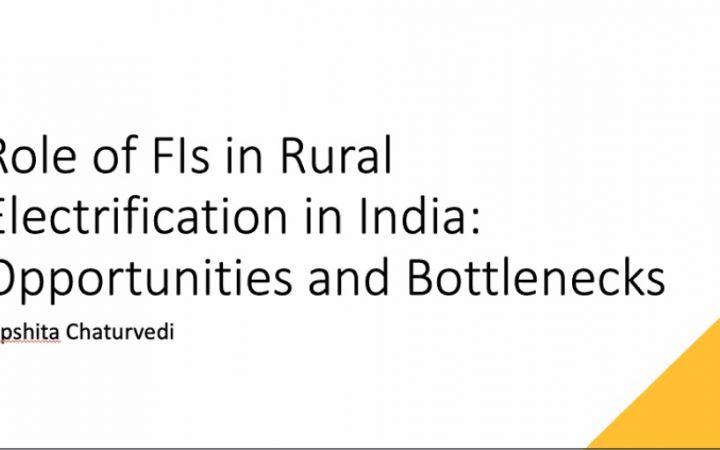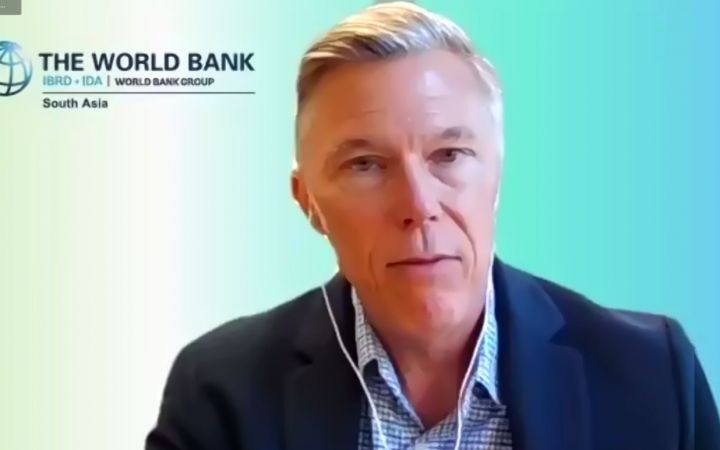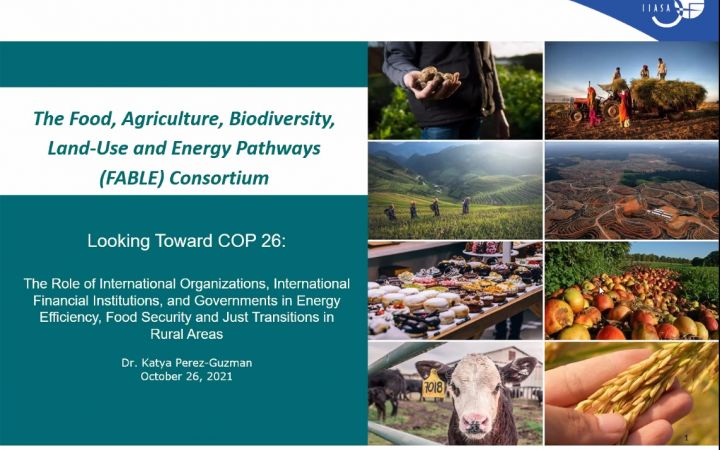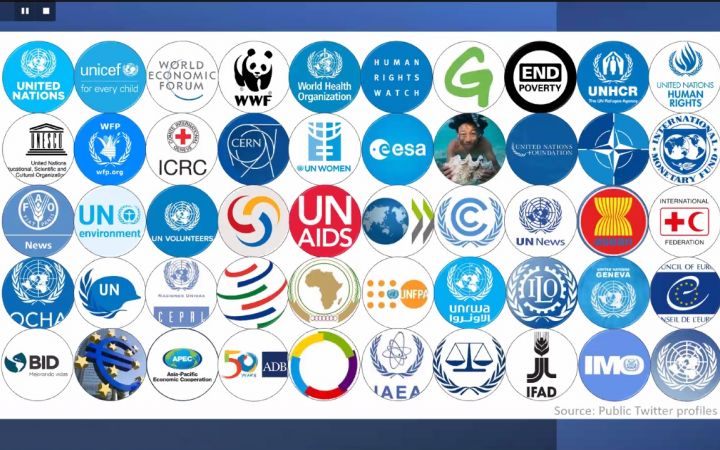26 October 2021, New York, USA - The second session of Looking Towards COP 26: The Role of International Organizations, International Financial Institutions and Governments in Energy Efficiency, Food Security and Just Transition in Rural Areas took place in October and was supported by UNITAR New York, in collaboration with Yale Center for Environmental Law & Policy. The course was attended by approximately 90 participants and focused on the importance of reaching clean energy targets and zero carbon gas emissions to overcome the climate change crisis.
Mr. Marco A. Suazo welcomed the participants and thanked panelists for coming along and sharing their knowledge and experience. He expressed his appreciation for such a successful course and stated how crucial it is to address the climate change crisis. Mr. Suazo then introduced Mr. Daniel Esty, Hillhouse Professor of Environmental Law and Policy, School of the Environment; Clinical Professor of Environmental Law & Policy, Yale Law School.
Mr. Esty began his session talking about the energy sector - specifically, electrification. He stated that there is sufficient information available on how to reach clean energy targets and about how the UN is providing pathways for countries to achieve net zero carbon gas emissions. Mr. Esty said that change is not easy and that the path towards clean energy, and zero carbon gas emissions, is long which is why a transition strategy is essential for those who will be most affected by the change. Ms. Nadia Ahmad, Visiting Associate Professor, Yale Law School; Associate Professor of Law, Barry University, then took over the floor to discuss the role of international organizations - with a specific focus on the International Renewable Energy Agency (IRENA). She stated the importance of, and requirement for, international collaboration. Ms. Ahmad talked in more detail about IRENA, its remit and aim of achieving a clean energy future, and plan to stabilize climate systems and reduce greenhouse gas emissions.
Ms. Ahmad then yielded the floor to Dr. Razva Kavakci Kan, Member of Parliament, President of Turkish Inter-Parlimentary Group. Dr. Kan discussed the challenges Turkey faced during the COVID-19 pandemic and how they are overcoming such challenges. She outlined Turkey’s agenda and the country's accomplishments so far in its plan to reach zero carbon gas emissions. Dr. Kan also talked about how the Turkish government is encouraging private organizations to become more energy efficient.
Dr. Katya Perez Guzman, Research Scholar, International Institute for Applied Systems Analysis Ecosystems Services and Management Program, followed next with a talk about Food, Agriculture, Biodiversity, Land-Use and Energy Pathways, also known as FABLE. She explained what the organization is doing to achieve more sustainable pathways. She also talked about the purpose of the organization, analyzing national policy options and international policy procedures.
Ms. Ahmad then introduced Ms. Ipshita Chaturvedi, Partner, Dentons Rodyk. Ms. Chaturvedi talked specifically about the role of financial institutions in rural electrification in India. She shared her experience of living in a village during the COVID-19 pandemic. She explained the importance of financial institutions investing in data systems in order to provide an accurate database to follow up on for improvements.
Mr. Thomas Kerr, Principal Climate Policy Officer, IFC, Climate Change Group, started by giving a brief update on the World Bank Strategic Research and Development Climate Change Action Plan. He discussed the transition of key systems in agriculture and food systems around the world and how they are becoming more resilient and better able to mitigate the effects of climate change, using examples from South-East Asia. Ms. Erum Sattar, Sustainable Water Management Program Lead, Institute of Environment, Friedman School of Nutrition Science and Policy, Tufts University, supported Mr. Kerr with a talk on reducing deforestation. She emphasized the importance of matching local returns with global gains.
Ms. Milagros (Millie) Mutsios, LL.M Candidate at Yale Law School; Researcher, Administrative Group at Pontificia Universidad Catolica del Peru, then followed with a discussion about energy efficiency in Latin America. She talked about regulations that help implement energy efficiency in Latin America; the strategies being implemented by institutions to reach energy efficiency, and a government incentive programme to encourage organizations to become more energy efficient. Ms. Mutsios illustrated her talk with examples from Peru.
Ms. Robin Happel, Law, Ethics & Animals Program (LEAP) student fellow; Masters Candidate, Yale School of the Environment; J.D. Candidate, Haub School of Law, Pace University, shared her experience of her home region in the Appalachian forest where people do not have electricity and how this affects families in the most basic ways imaginable, such as not being able to study at night. She also talked about NGOs and what they are doing to help. Mr. Anthony Tohmé, J.D. Candidate, Yale Law School, supported Ms. Happel in raising the issue of unsustainable resource extractions. He provided examples of countries selling resource extractions to western nations. Ms. Helia Bidad, Law, Ethics & Animals Program (LEAP) student fellow; J.D. Candidate, Yale Law School, then took to the floor to talk about biofuels and how they can be used as an ideal source of clean energy. She talked about the importance of multilateral cooperation, as well as the need for more international cooperation. The second session of Looking Towards COP 26 ended with an interactive Q&A session between panelists and participants.


